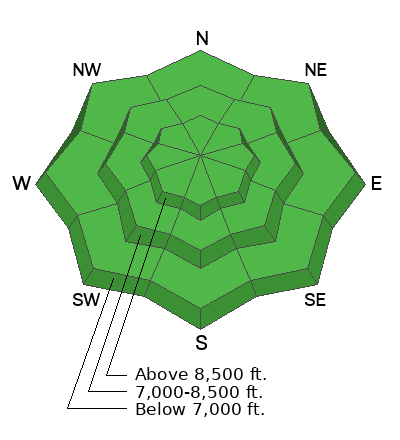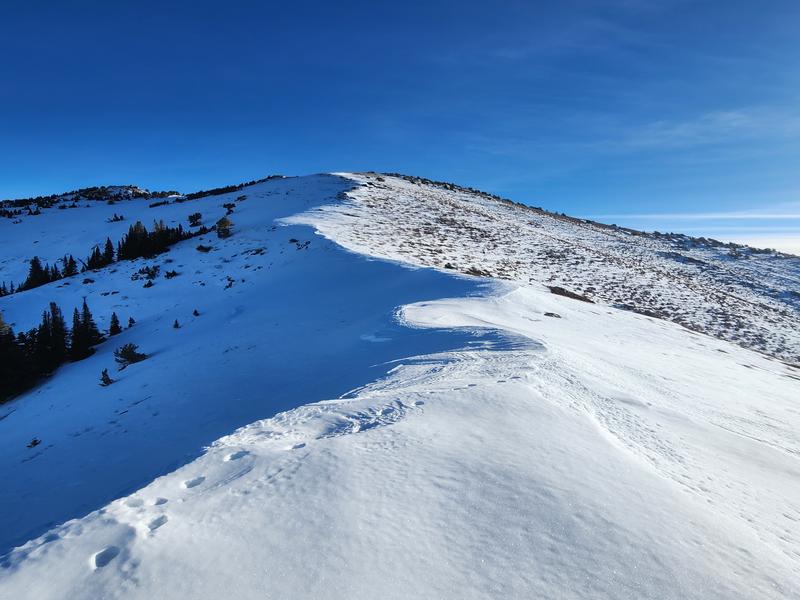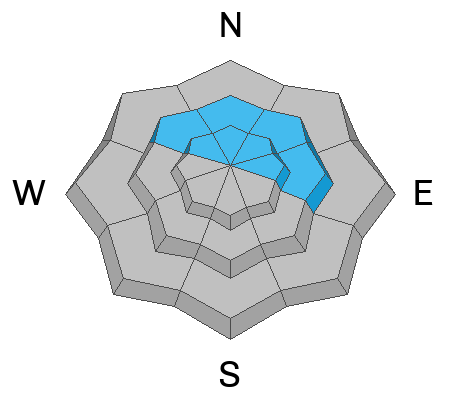Forecast for the Ogden Area Mountains

Issued by Dave Kelly on
Sunday morning, December 8, 2024
Sunday morning, December 8, 2024
The avalanche danger is LOW. With increased wind speeds last night and continuing through the day, evaluate snow and terrain carefully in locations where wind transported snow could accumulate and create wind slabs near ridgelines that may fail on a buried layer of facets. Stay away from thinner areas where you may find buried objects just under the snow surface.

Low
Moderate
Considerable
High
Extreme
Learn how to read the forecast here








